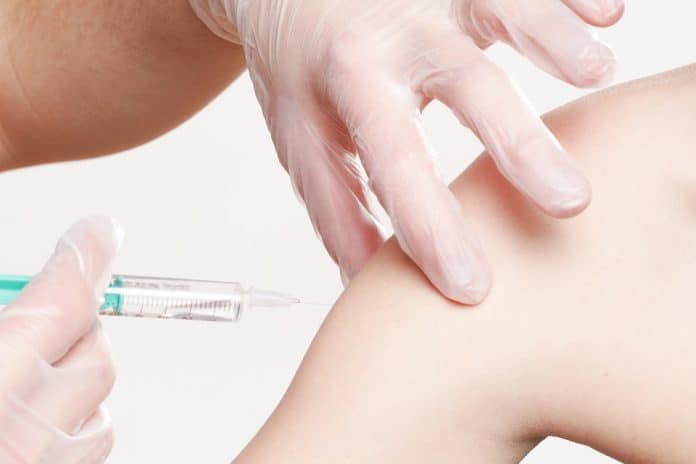
NEW JERSEY – Governor Phil Murphy has declared August as National Immunization Awareness Month to raise awareness about the important role vaccines play in preventing serious, sometimes deadly, diseases. The Department encourages New Jerseyans to use National Immunization Awareness Month as an opportunity to make sure your vaccinations are up to date.
“COVID-19 disrupted both in-person learning and routine vaccination appointments for many children over the last year,” said Health Commissioner Judith M. Persichilli. “I encourage families to put vaccination at the top of their checklist as part of their safe return to school and increased social activities.”
Childhood vaccines protect against 16 serious diseases such as diphtheria, tetanus, pertussis (whooping cough), polio, measles, mumps, rubella, Haemophilus influenzae type b (Hib), hepatitis B, varicella (chickenpox) and pneumococcal disease, thereby reducing the spread of disease to others in classrooms, child care centers and communities.
Everyone six months of age and older is recommended to receive a yearly flu vaccine. Benefits of flu vaccination include reduced flu illnesses, fewer doctors’ visits and fewer flu-related hospitalizations.
Although routine vaccination rates dropped across all age groups during the pandemic, one of the largest decreases was seen in adolescent vaccines. As children get older, they need to be protected from certain diseases like pertussis (whooping cough), meningococcal disease, and infections that can lead to cancers associated with human papillomavirus (HPV). It is also especially important for everyone ages 12 and older to receive a COVID-19 vaccine, which may be administered at the same time as other routine vaccines. Visit covid19.nj.gov/finder to find the nearest vaccination site.
The Department of Health is encouraging pediatricians to assess the vaccination status of all their patients, especially adolescents, and contact those who are behind schedule to ensure that all children are fully vaccinated, especially as they plan to return to school.
The need for vaccines does not end in childhood. Adults may need vaccines to protect against whooping cough, pneumonia, and shingles. Vaccination is especially important for those who suffer from chronic health conditions such as diabetes, heart disease and asthma. Living with one of these chronic health conditions and getting sick with a vaccine-preventable disease can cause severe health consequences. Other adult vaccines may be recommended based on age, health condition, job, or lifestyle.
Those who are planning to become pregnant should check with their doctor to make sure they have received all recommended vaccines. The Centers for Disease Control and Prevention (CDC) recommends all pregnant women receive flu vaccine at any time during pregnancy, and whooping cough vaccine (Tdap) early in their third trimester, during each pregnancy. Vaccinating women against these diseases is a safe and effective way to help protect both mother and child.
“While communities are at increased risk of vaccine preventable diseases due to decreased vaccination rates, some are at greater risk including communities of color, immigrant populations and those who don’t have access to transportation,” said Commissioner Persichilli. “The Department has been working with the CDC, community leaders, school districts, and faith leaders to ensure equitable access to vaccinations.”
Most health insurance plans cover recommended immunizations. Parents who need help paying for vaccines should ask their child’s healthcare provider about the Vaccines for Children program. This program provides no-cost or low-cost vaccines to children who are Medicaid-eligible, uninsured, underinsured, or American Indian/Alaska Native. Adults who are uninsured or do not have insurance for certain vaccines should contact their local health department or federally qualified health center to see if they qualify for no- or low-cost vaccines through the 317-funded program.
Vaccines are frequently available at doctor offices, as well as other convenient locations, such as pharmacies, workplaces, community health clinics and health departments. Information about vaccines, recommended immunization schedules for all age groups and can be found at the CDC website at cdc.gov/vaccines.






